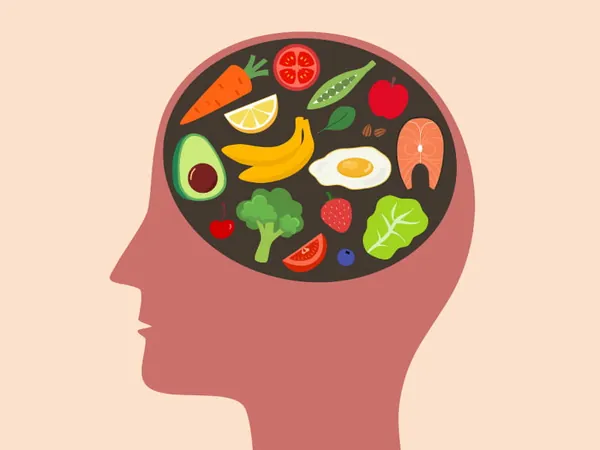
Unlocking Your Brain's Potential: How Your Diet Shapes Cognitive Health Throughout Life
2024-09-27
In our ever-evolving understanding of health, one compelling truth emerges: what we put on our plates significantly impacts not only our physical well-being but also our cognitive vitality. A plethora of studies solidify the connection between heart health and brain health, revealing that the same risk factors leading to cardiovascular diseases are also culprits in Alzheimer's and other dementias. This prompts us to wonder: Can a better diet not only enhance heart health but also energize our brain's performance?
The resounding answer from experts is "Yes!" The journey to optimal brain health begins well before birth and extends throughout a person's life.
The Foundation Begins in the Womb
According to Dr. Rebecca MacPherson, a respected associate professor at Brock University, the nutritional choices of expectant mothers are pivotal during pregnancy. For instance, folate (vitamin B9) is essential for fetal brain development. A deficiency in this nutrient can lead to severe birth defects. Foods rich in folate include leafy greens, beans, and eggs, while prenatal vitamins serve as an additional safeguard.
Moreover, recent studies suggest that a mother’s high-fat diet can elevate her child's risk of psychiatric and behavioral issues, such as anxiety and autism spectrum disorders. Equally important are omega-3 fatty acids, which are abundant in cold-water fish. Insufficient intake during pregnancy may raise the stakes for cognitive development complications in the child.
Nurturing Young Minds
As children grow, their diets play a dramatic role in cognitive development, especially in the first two years when their brains are forming critical connections. A study published in *Child Development* found that infants on omega-3 enriched formulas demonstrated superior problem-solving skills as compared to those who weren’t supplemented.
Dr. MacPherson emphasizes that a child's diet fuels the brain's dynamic growth. Nutritional deficits can lead to inflammation and impaired cognitive function, compromising academic performance. Research highlights the benefits of exchanging simple carbohydrates and unhealthy fats for complex carbohydrates and healthy fats to enhance memory. Furthermore, high consumption of healthy foods like fish, fruits, and vegetables—especially berries—has been linked to improved academic results.
Sustaining Cognitive Power in Adulthood
As individuals transition into adulthood, the stakes for maintaining a healthy diet remain high. A lack of omega-3 fatty acids has been associated with mood disorders and cognitive deterioration. Conversely, an improvement in brain health, learning, and memory has been linked to higher intake of these beneficial fats. A quality diet during midlife connects directly with structural brain health—poor dietary choices pave the way for obesity, diabetes, and heart disease, with cascading effects on cognitive capacity over time.
What Constitutes a Brain-Boosting Diet?
Experts argue against focusing narrowly on superfoods; rather, they advocate for broader dietary patterns. Emerging studies juxtapose Western dietary habits with Mediterranean, DASH (Dietary Approaches to Stop Hypertension), and MIND (Mediterranean-DASH Diet Intervention for Neurodegenerative Delay) diets, the latter showing promise in preserving cognitive function and reducing dementia risk as noted in a compelling *Journal of Alzheimer's Disease* study.
The American Heart Association’s 2023 research reinforces this, revealing that Mediterranean and DASH-style diets offer significant heart health advantages. Dr. MacPherson warns that a typical Western diet, laden with processed foods and sugars, presents a stark contrast to more beneficial eating styles.
Steps Toward Change
Transitioning to a healthier eating pattern can appear daunting. Dr. Kevin Volpp from the University of Pennsylvania notes that changing long-standing habits takes effort, especially in a society where processed foods are easily accessible and often more appealing.
Despite this, knowledge about healthy eating is substantial, yet barriers like access and affordability can inhibit progress. Additionally, human inclination towards immediate satisfaction makes it difficult to resist unhealthy options. Seasonal studies reveal that even short-lived indulgences in unhealthy fats and sugars can trigger neuroinflammation linked to cognitive decline.
Dr. Volpp emphasizes that while a single indulgent meal might seem inconsequential, repetitive poor choices accumulate over time, impacting long-term health.
In conclusion, a conscientious approach to diet is crucial for fostering better brain health across the lifespan. As Dr. MacPherson states, building strong eating habits is essential. With discipline and informed choices, we can unlock our brain's fullest potential—not just today but for years to come. Start your journey now and kickstart a lifestyle that promotes not only a healthy heart but a resilient brain!









 Brasil (PT)
Brasil (PT)
 Canada (EN)
Canada (EN)
 Chile (ES)
Chile (ES)
 España (ES)
España (ES)
 France (FR)
France (FR)
 Hong Kong (EN)
Hong Kong (EN)
 Italia (IT)
Italia (IT)
 日本 (JA)
日本 (JA)
 Magyarország (HU)
Magyarország (HU)
 Norge (NO)
Norge (NO)
 Polska (PL)
Polska (PL)
 Schweiz (DE)
Schweiz (DE)
 Singapore (EN)
Singapore (EN)
 Sverige (SV)
Sverige (SV)
 Suomi (FI)
Suomi (FI)
 Türkiye (TR)
Türkiye (TR)